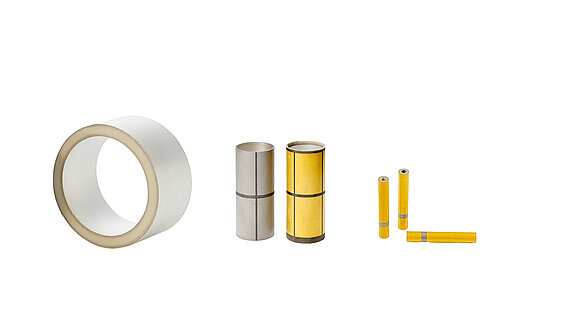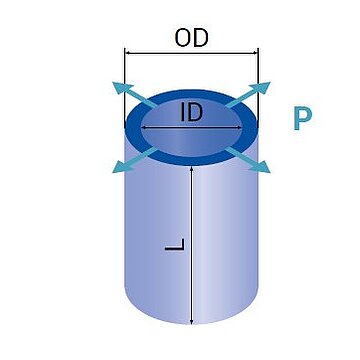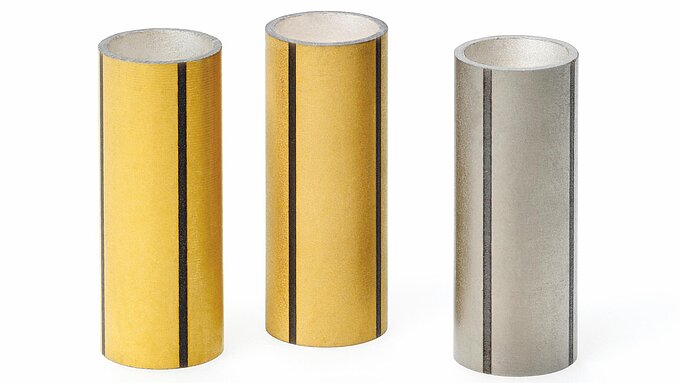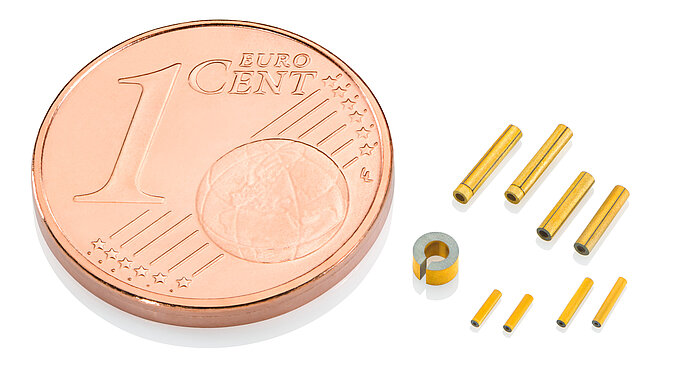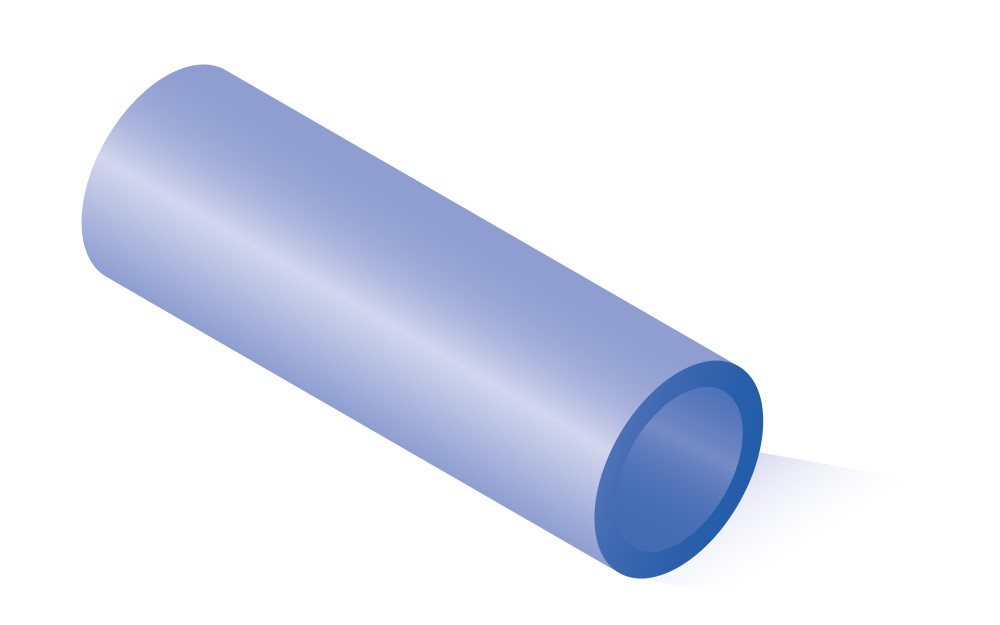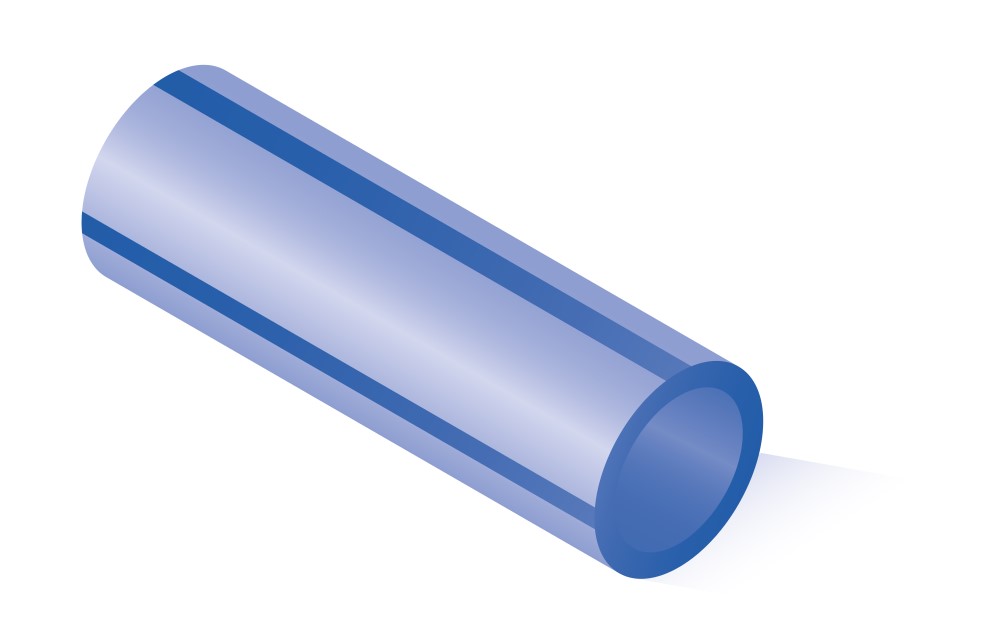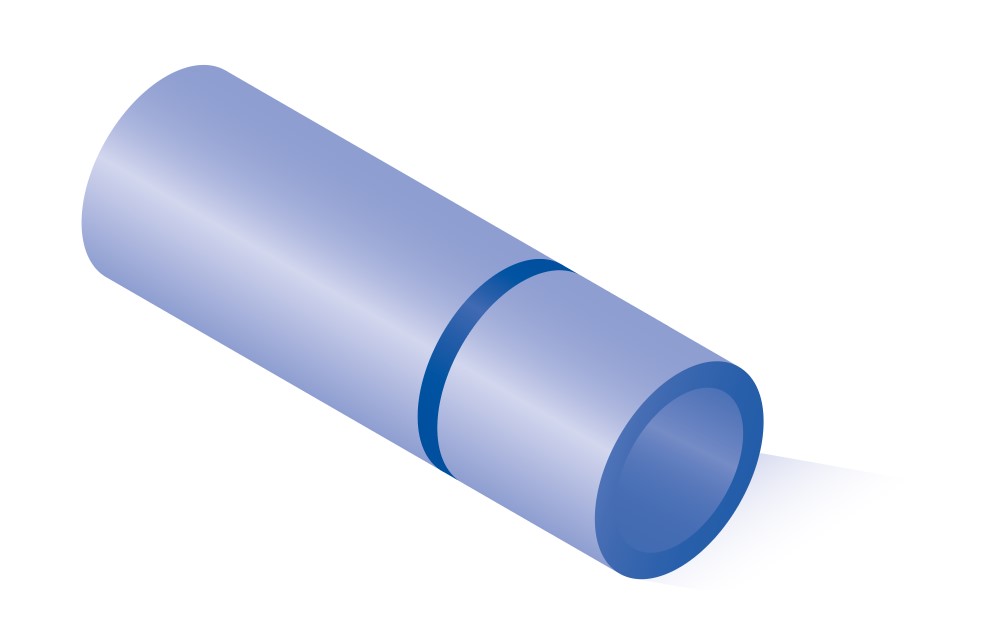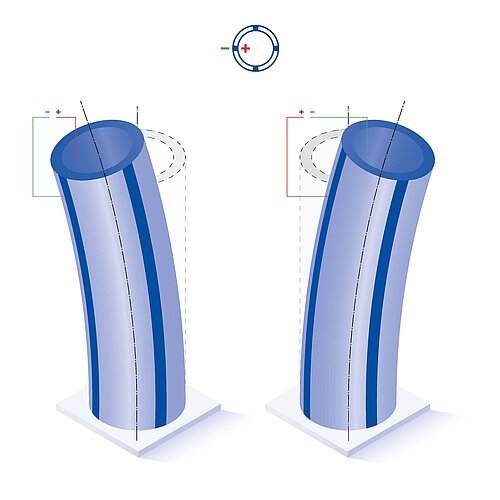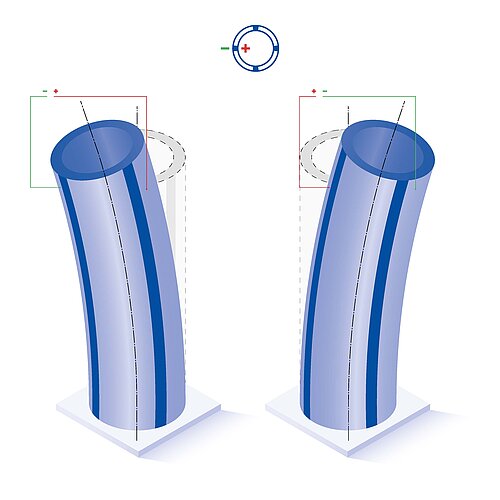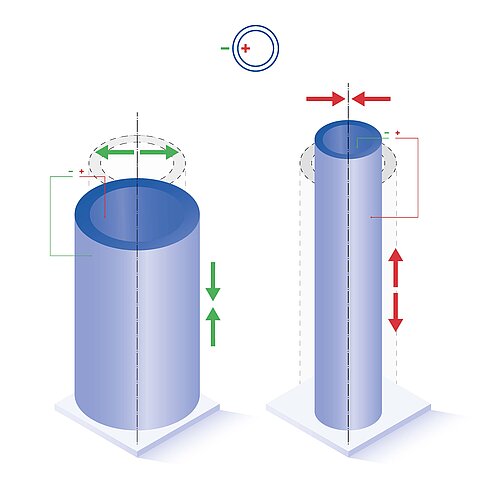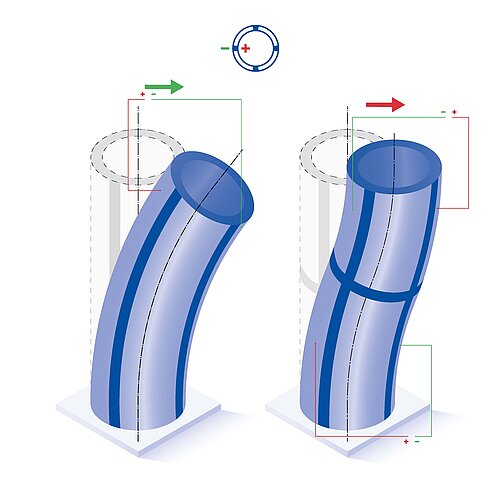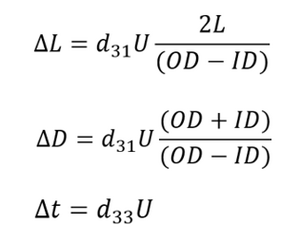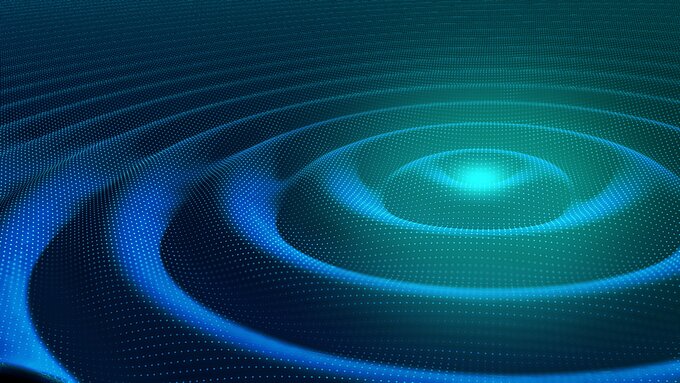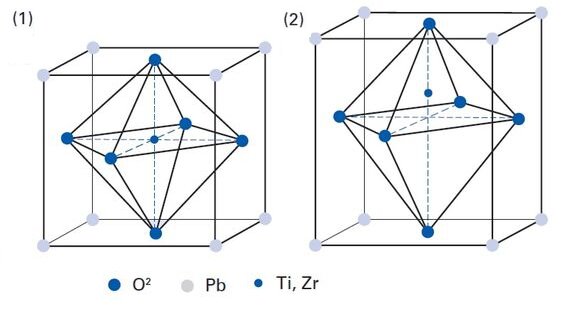- Lowest tolerances (0.05 mm)
- Large variety of outside diameters (<0.5 mm to 150 mm)
- Metallizations with thin and thick layer technology, wraparound contact is possible
- Segmented electrodes for lateral displacements
- Industrial-grade assembly with wire, stranded wire or flex board contacting
- Protective coatings
- Glass fiber bonding
- Suitable for non-magnetic applications (>1 T), as well as ultrahigh vacuum environments (up to 10-10 hPa)
When a voltage is applied, the diameter, axial length, and wall thickness of piezoceramic tubes change. Segmented electrodes can be used to generate precise lateral displacements through bending. These precise and ultrafast motions have many applications, ranging from microdosing and inkjet printing to precise positioning of small objects, to straining and moving glass fibers, and to generating ultrasound.
Customized Versions upon Request
For both customized and standard products, PI Ceramic offers extensive service, from the selection of suitable materials to the development of application-based solutions. Within certain limits, the dimensions of piezo tubes are selectable. Depending on the desired specifications or target applications, modifications are possible with regard to contacting, coating (e.g., >> parylene and other chemical coating procedures), or bonding. Non-magnetic variants for field strengths > 1 T are also available.
To generate lateral movement of the tubes, piezo tubes can be equipped with multiple segmented electrodes. Wraparound contacts allow the electrical contacts to be installed in a convenient position within the mechanical assembly.
In addition to electrode coating using screen printing (thick layers) or sputtering (thin layers), it is also possible to coat tubes with an internal diameter of more than 1 mm with electroless nickel. The coating thicknesses are between 1 and 5 µm.
>> Using special adapters, small tubes with quadruple segmented electrodes can be easily contacted under the microscope and without loss of function.
Depending on the contacting and installation of the electrodes, different displacements occur in the XY and axial directions. For example, for tubes with positive polarization direction on the inside and negative polarization direction on the outside, the deflection directions for a single outer segment are as follows:
XY displacement with single electrode inside and outside as well as with both electrodes attached to the opposite outer segments
All formulas shown are valid for idealized geometries (ID, OD >> t). Tubes with negative polarization direction as well as internal ground (GND) show opposite displacement directions.
Glass Capillary Bonding
Piezo tubes can be used in the field of medical and industrial microdosing. Special contacting and control of the tubes generate targeted pressure pulses. These result in the precise delivery of fluid from a capillary in the picoliter range. In addition to customized manufacturing of piezo tubes, PI Ceramic has the expertise to bond them with ultrafine glass capillaries from our customers.
- Intravascular lithotripsy
- Atrial fibrillation intravascular catheters
- Intravascular ultrasound imaging
- Microarray spotting
- Ultrasonic needle tip tracking (NTT)
- Scanning fiber microscopy
- Atomic force microscopy
- Precision dosing and inkjet printing
- Underwater communication
- Micromanipulation
- Scanning tunnel microscopy
Downloads
Material Data
Datasheet Tubes with Connector
User Manual A000T0047
Handling and Electrical Contacting of Piezo Components
